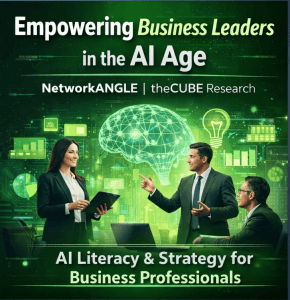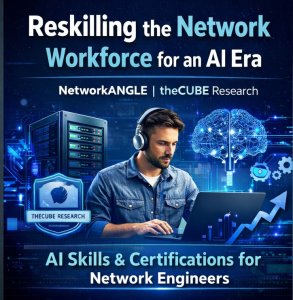Blockchain is all the rage, but for the most part, it has barely begun to enter the mainstream of enterprise computing.
Nevertheless, blockchain now has considerable momentum in many industries. To confirm that, all you need to do is check out recent headlines on how many high-tech vendors are bringing the capability into the heart of their solution portfolios.
For example, Cisco Systems Inc. is exploring the convergence of blockchain and the “internet of things” for managing supply chain risk. Salesforce.com Inc. Chief Executive Marc Benioff has announced that the company will introduce a blockchain product later this year. IBM Corp. is running blockchain software on Linux on its Z mainframe platform. And, for good measure, venture capitalists are falling all over themselves to fund blockchain startups.
Enterprise information technology professionals have more and more options for bringing blockchain into their environments. For starters, blockchain is an open-source technology that is available through many distributions that can be downloaded and deployed at no charge. And more solution providers are offering it in fast-deployment quick-value packages.
Technology professionals everywhere can now set up blockchains through the following principal approaches:
- Blockchain platforms as a service: Enterprise adopters may wish to access end-to-end managed blockchains on an as-a-service subscription basis. To that end, IBM last month launchedits Blockchain Platform, which offers the capability as a software-as-a-service on its public-cloud service. As described in this IBM whitepaper, the service runs on the open-source Hyperledger blockchain version from the Linux Foundation. It includes intuitive tooling that helps IBM Cloud subscribers to accelerate development and operationalization of a distributed, scalable and high-performance blockchain. Leveraging IBM’s extensive experience helping customers deploy blockchain, the service enables developers to build and optimize cloud-based blockchains for pilot evaluations, preproduction proofs of concepts or secure production environments, as discussed here. Developers use Integrated Hyperledger Composer to turn business concepts into application code optimized for running on the deployed blockchain. Policy-based governance tools simplify network activation and management tasks across distributed blockchains. IBM Cloud’s always-on operations enable 24×7 no-downtime updates of network members, smart contract codes and Hyperledger Fabric versions.
- Blockchain deployment templates: Some enterprises may want to set up their own blockchain platforms-as-a-service in public, private or hybrid clouds, with commensurate options for end-to-end management of the capability. For its public-cloud users, Amazon Web Services Inc. last week launchednew preset templates for rapid creation, deployment and securing blockchains in the AWS cloud. Accessible through this get-started page, these templates make it easier for developers to create blockchains on either of two blockchain versions: Ethereum and Hyperledger Fabric. The templates create peer-to-peer blockchains where each participant has access to a shared ledger where the immutable, independently verifiable transactions are recorded. Users can leverage managed, certified AWS CloudFormation templates to automate the deployment of Ethereum and Hyperledger Fabric frameworks, as well as additional required components. The blockchains may be deployed on Amazon Elastic Container Service or ECS clusters, or directly on an EC2 instance running Docker. Blockchains are created in the user’s own Amazon Virtual Private Cloud, allowing use of their PC subnets and network Access Control Lists. Users can assign granular permissions using AWS Identity and Access Management to restrict which resources an ECS cluster or EC2 instance can access. The blockchain templates are free of additional charge to AWS customers, though they must still pay for the AWS resources needed to run their blockchains on AWS. They can create and deploy blockchain networks in any public AWS region, as discussed here.
- Blockchain domain accelerators: Some blockchain adopters may do so through partnerships with solution accelerator firms with an industry, country or other domain focus. Many users may choose to deploy blockchains in league with any of the solution accelerator incubators discussed in this recent article. These are blockchain consulting partners with operations in US, UK, Germany, China, South Korea, Japan, Kenya and elsewhere, and with expertise in deploying blockchain into cryptocurrency, financial services, supply chains, public sector, IoT and other solution domains. Many are startup consulting firms, but at least one — the IBM Blockchain Accelerator— comes from an established blockchain solution provider.
- Blockchain community ecosystems: More often than not, blockchains, as a platform for connected data, will follow the connectedness of industry ecosystems. Depending on your sector, you may want to get involved in the most relevant of the vertically focused blockchain distributed supply-chain initiatives listed on this site. Generally, these initiatives implement blockchain as a trusted, immutable and distributed platform for industry-focused digital notarization, identity management and transactions. If you’re an identity management professional, you may choose to implement the security-focused Sovrin blockchain discussed herein my recent SiliconANGLE column. Or if you’re an AI solution provider, you may want to get involved in the blockchain community initiatives discussed in my recent Datanami column.
Check out this recent Cube interview with Inhi Cho Suh, IBM general manager of Watson customer engagement, where she discusses how the company is integrating their blockchain and AI technologies to help customers improve supply-chain efficiencies:


